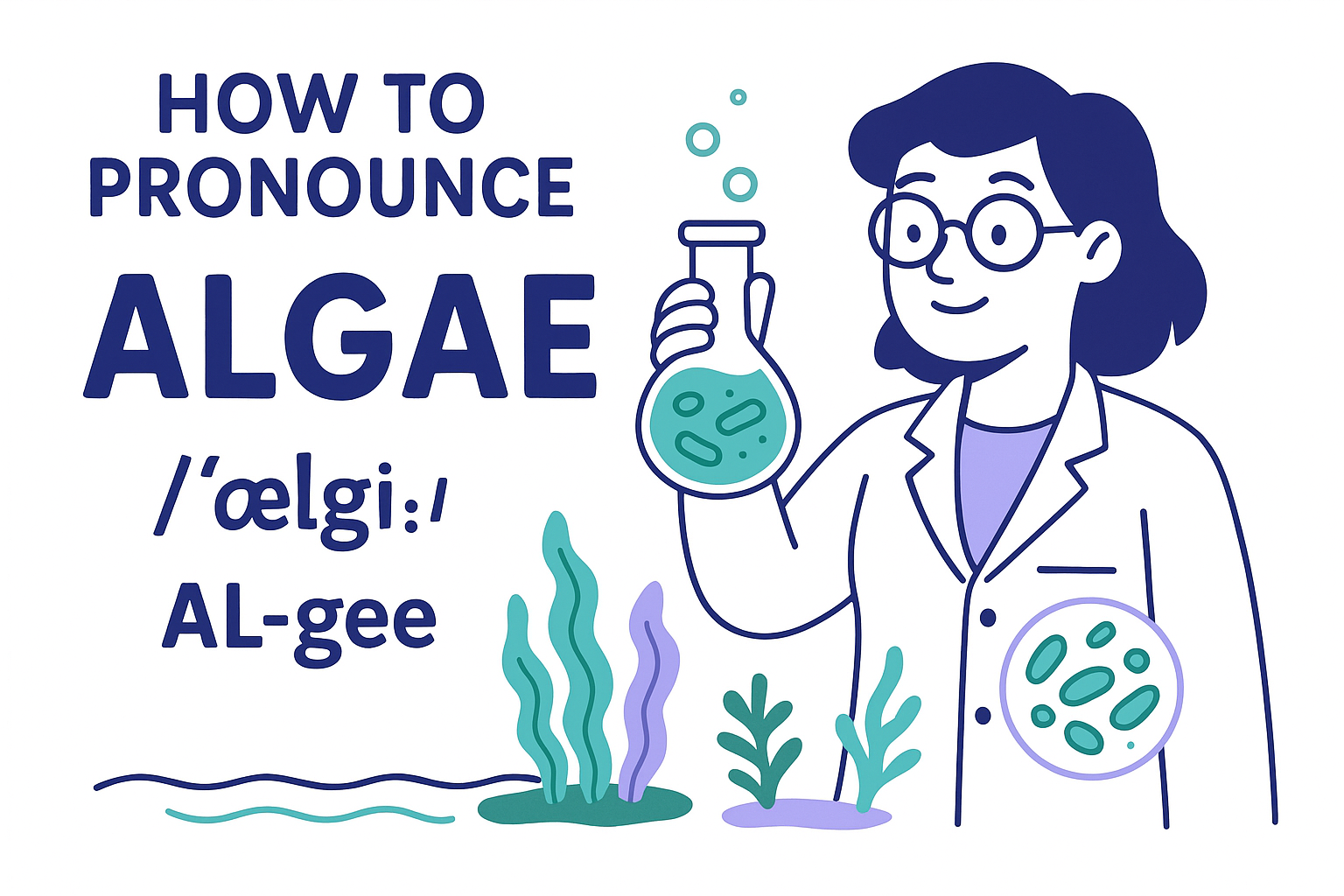How to pronounce
Algae
Whether you’re studying biology or reading a pool‑care label, you’ll see the word “algae,” but its pronunciation shifts slightly by region.
Step‑by‑Step Pronunciation Guide
British English: /ˈæl.dʒiː/ → AL‑jee
Breaking it down — AL (rhymes with “pal”), jee (long “ee”). Stress the first syllable.
American English: /ˈæl.dʒeɪ/ → AL‑jay
Breaking it down — AL, jay (like the letter J). Stress the first syllable.Both versions have two syllables; choose the one common in your region or audience.
Common Mispronunciations
• Saying “AL‑guy” with a hard g
• Stretching it to three syllables (“AL‑gee‑ee”)
• Dropping the soft g sound and saying “AL‑gee” with a hard g
Practice Sentences
• “Marine algae produce much of the world’s oxygen.”
• “The pond turned green with algae after the heatwave.”
• “Scientists study algae to create biofuels.”
Algae in Science and Everyday Life
Algae are used in food, cosmetics, fertilizers, and renewable‑energy research. From sushi’s nori sheets to spirulina smoothies, knowing how to pronounce algae—AL‑jee in the U K., AL‑jay in the U S.—makes conversations about these versatile organisms clearer.

Definition of
Algae
Algae are simple, typically aquatic organisms — ranging from single‑celled microalgae to giant kelp — that photosynthesize and play key roles in ecosystems and global oxygen production.
What does it mean
Algae
From Latin alga (“seaweed, rockweed”); the plural form algae entered English in the 18th century through scientific Latin to describe photosynthetic aquatic organisms.
Frequently asked questions
Auto-record your calls for instant
feedback on communication

Know how to improve speaking
after every Google Meet call





.svg)
.avif)
